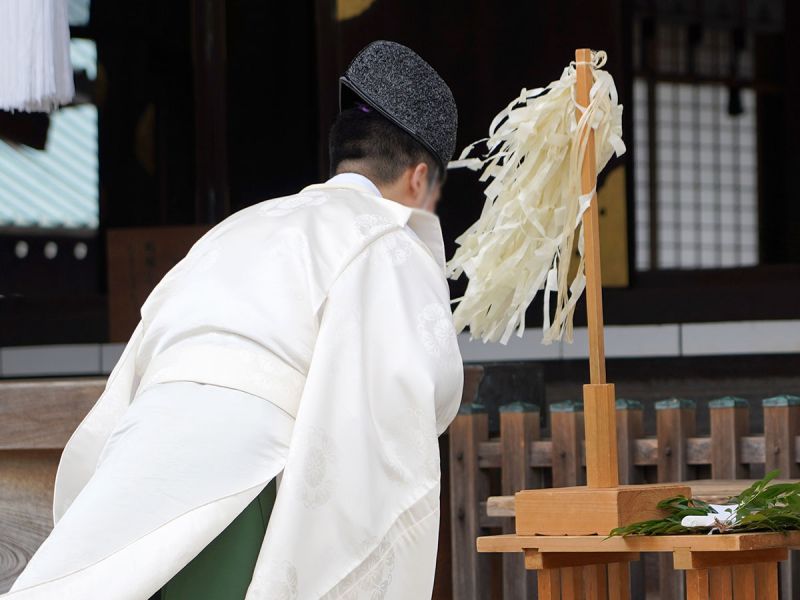
Table of Contents
ToggleIntroduction
Agarwood, also known as oud or aloeswood, is a highly prized aromatic resinous wood derived from the heartwood of Aquilaria trees. This rare and precious material forms when the tree becomes infected with a specific type of mold, prompting it to produce the fragrant resin as a defense mechanism. Due to its scarcity and the labor-intensive process required to harvest it, agarwood has been treasured for centuries across various cultures and religions.
This article delves into the spiritual significance of agarwood in major religions, exploring its religious use and the profound meanings it holds within different spiritual practices. By understanding its role in Buddhism, Hinduism, Islam, and other religious traditions, we can appreciate agarwood not just as a valuable commodity but as a sacred element that bridges diverse cultural and spiritual landscapes.

The Spiritual Significance of Agarwood
A Symbol of Spirituality
Agarwood serves as a potent symbol of spirituality, embodying a connection between the earthly and the divine. Its rich, lingering fragrance is believed to purify the environment, creating a serene atmosphere conducive to meditation and spiritual practices.
The use of agarwood in various rituals signifies a bridge to the sacred, enhancing the spiritual experience and fostering a deeper sense of connection with the divine. Exploring the use of agarwood in religion helps us appreciate its deep-rooted significance in various spiritual practices.
Religious Use of Agarwood
The religious use of agarwood is widespread, featuring prominently in ceremonies, rituals, and daily spiritual activities. Whether burned as incense, used in anointing, or incorporated into sacred objects, agarwood plays a crucial role in healing and spiritual well-being.
Its aromatic properties are believed to cleanse spaces and auras, promoting mental clarity and emotional balance. Understanding the identification characteristics of agarwood is vital, especially as different cultures may attribute varying spiritual meanings to different types of agarwood.

Agarwood in Buddhism
Historical Use in Buddhist Practices
Agarwood in Buddhist Scriptures
In Buddhism, agarwood is mentioned in various sacred texts, symbolizing purity and enlightenment. Stories and parables within Buddhist scriptures often highlight the use of agarwood as a means to achieve deeper meditation and spiritual insight. Its presence in these texts underscores its importance in the Buddhist path to enlightenment.
Meditation and Enlightenment
Agarwood plays a significant role in enhancing meditation experiences. The burning of agarwood incense in monasteries and temples creates an atmosphere of tranquility, aiding practitioners in reaching higher states of consciousness. This fragrant wood is believed to help clear the mind, making it easier to focus and attain enlightenment.

Rituals and Ceremonies
Purification Rituals
In Buddhist traditions, agarwood is integral to purification rituals. It is used to cleanse spaces and individuals, preparing them for meditation and prayer. The incense made from agarwood is thought to dispel negative energies, creating a sacred environment conducive to spiritual activities.
Learning how to use agarwood products can enhance the spiritual experiences associated with its use in religious ceremonies underscores its role as a bridge between the earthly and the divine, enhancing the spiritual ambiance of sacred spaces. This connection is further explored in Agarwood’s Cultural Significance, highlighting its impact across various domains.

Festivals and Celebrations
During significant Buddhist events such as Vesak, agarwood is used extensively in festivals and celebrations. Its aroma symbolizes the purification of the mind and the celebration of the Buddha’s teachings. Additionally, agarwood features in Buddhist art and iconography, representing spiritual purity and divine presence.

Agarwood in Hinduism
Agarwood in Vedic Scriptures
Mentions in Ancient Texts
Agarwood holds a venerable place in Hinduism, with numerous references in ancient texts like the Vedas and Upanishads. These scriptures often associate agarwood with various deities and mythological stories, highlighting its sacred status. The wood is frequently mentioned in hymns and rituals, underscoring its importance in Hindu spirituality.
Sacred Symbolism
In Hinduism, agarwood symbolizes purity and divinity. It is closely linked to deities such as Lord Krishna and Shiva, representing their divine attributes. The fragrant wood is also seen as a manifestation of divine grace, enhancing the spiritual ambiance during worship and rituals.
Role in Rituals and Worship
Yajna (Sacrificial Rituals)
During Yajna, or sacrificial rituals, agarwood is offered to the sacred fire. This offering is believed to invoke blessings and favor from the gods. The sacred smoke from the burning agarwood is thought to carry prayers and intentions to the divine, facilitating a deeper connection between the worshipper and the deity.

Puja (Worship) Practices
Puja, the daily worship ritual in Hinduism, frequently incorporates agarwood. Whether used as incense or in anointing rituals, agarwood enhances the spiritual ambiance, fostering a sense of devotion and reverence. Its presence in temples and during Puja ceremonies signifies the offering of pure and sacred elements to the divine.

Spiritual Benefits in Hindu Beliefs
Healing Properties
In Ayurveda, the traditional Hindu system of medicine, agarwood is valued for its healing properties. It is used to balance the chakras and energy fields, promoting mental and physical well-being. The therapeutic benefits of agarwood are believed to support overall health and spiritual harmony.
Enhancing Devotion
Agarwood aids in deepening spiritual connections and enhancing devotion. Its calming fragrance helps practitioners concentrate during prayer and meditation, fostering a stronger bond with the divine. This aromatic wood is also used to create a peaceful and sacred environment, essential for sustained spiritual practice.

Agarwood in Islam
References in Islamic Texts
Mentions in the Quran and Hadith
In Islam, agarwood is mentioned in the Quran and Hadith as a symbol of paradise and divine grace. Stories involving the Prophet Muhammad highlight the use of agarwood, emphasizing its significance in Islamic spirituality. The fragrant wood is often associated with heavenly scents, reflecting its esteemed status in Islamic tradition.
Sunnah Practices
Following the Sunnah, the traditions of the Prophet Muhammad, Muslims incorporate agarwood into various aspects of daily life and worship. Its use is considered a Sunnah practice, aligning with the Prophet’s emphasis on purity and fragrance. Agarwood is used in anointing, perfumes, and as part of incense during religious ceremonies.

Cultural Significance
Use in Daily Life
Beyond religious rituals, agarwood holds cultural importance in Islamic societies. Its cultural impact on art and literature is further explored in Agarwood in Art and Literature, demonstrating its multifaceted significance.
Religious Ceremonies
During Islamic Eid celebrations and mosque rituals, agarwood is employed to purify spaces and enhance the spiritual atmosphere, symbolizing cleanliness and devotion. This presence prepares individuals for prayer and fosters a sense of communal worship.

Additionally, agarwood plays a vital role in purification rites, ensuring that religious activities occur within a sacred and respectful environment. Therefore, when buying quality agarwood, it is important to consider its cultural significance, especially within these religious contexts.
Agarwood in Other Religious Traditions
Christianity
Historical Use
In Christianity, agarwood is referenced in the Bible as aloeswood, symbolizing sanctity and reverence. It played a role in anointing kings and priests, as well as in burial practices, signifying the sacredness of life and the afterlife.
Modern-Day Practices
Today, agarwood continues to be used in Christian rituals. It is burned as incense during mass and liturgies, creating a sacred ambiance and symbolizing the presence of the divine. The fragrant smoke is believed to carry prayers heavenward, enhancing the spiritual experience.

Taoism and Chinese Religions
Spiritual Symbolism
In Taoism and other Chinese religions, agarwood represents balance and harmony. It is used in practices like feng shui and energy cleansing, promoting positive energy flow and spiritual well-being. The wood’s aroma is believed to align the mind and body, fostering inner peace.
Ritual Practices
Agarwood is integral to various ritual practices in Chinese traditions. It is used as offerings to ancestors and deities, honoring their presence and seeking blessings. Additionally, agarwood enhances meditation and martial arts, providing a focused and serene environment for practitioners.

Japanese Shinto Practices
Sacred Rituals
In Shinto, the indigenous spirituality of Japan, agarwood is used in purification rites. Its fragrance purifies spaces and individuals, preparing them for sacred rituals and offerings. The wood’s presence in temples and shrines signifies its role in maintaining spiritual purity.

Cultural Heritage
Agarwood is also part of Japan’s cultural heritage, featured in traditional arts like Kōdō (The Art of Incense). This refined practice emphasizes the appreciation of agarwood’s aroma, integrating it into ceremonial and artistic expressions that honor its sacred qualities.

The Global Cultural Impact of Agarwood
Trade and Economy
Historically, agarwood has been a valuable commodity in global trade, with extensive trade routes established to transport it across continents. Its high value has significantly impacted local economies and cultures, fostering trade relationships and economic dependence on this precious resource.
Conservation Efforts
The increasing demand for agarwood has raised significant sustainability concerns. Overharvesting has led to the decline of Aquilaria trees, prompting urgent conservation efforts. Organizations and governments are now focused on ethical sourcing and sustainable cultivation to protect agarwood species and ensure their preservation for future generations. Ongoing research on agarwood will undoubtedly uncover further insights into its spiritual significance across different cultures.
Conclusion
Unified Spiritual Significance
Across various religions, agarwood shares common themes of purity, divinity, and spiritual enhancement. Its religious use and spiritual significance make it a revered element that transcends cultural boundaries, serving as a bridge between diverse spiritual practices and traditions.
Continued Relevance
In the modern world, agarwood continues to hold relevance both in spiritual and daily life. Its use in meditation, worship, and personal well-being underscores its enduring value. Preserving the traditions and sustainable practices surrounding agarwood ensures that its sacred legacy remains intact for generations to come.
Frequently Asked Questions (FAQs)
1. What makes agarwood so valuable in religious practices?
Agarwood is highly esteemed in religious practices due to its rarity, aromatic properties, and symbolic meanings. Its ability to purify spaces, enhance meditation, and symbolize divinity makes it a cherished element in various spiritual traditions.
2. How is agarwood used differently across religions?
While the uses of agarwood vary, common practices include incense burning, anointing, and incorporation into rituals. Each religion adapts agarwood to its unique spiritual needs, whether for purification, worship, or enhancing spiritual experiences.
3. Are there any sustainability concerns with agarwood?
Yes, agarwood faces significant sustainability concerns due to overharvesting and habitat loss. This has led to the scarcity of Aquilaria trees, prompting conservation and sustainable cultivation efforts to protect and preserve this valuable resource.
Author
Le Minh Tuan is the Marketing Director of Oudgo, where he leads the development of marketing strategies, brand promotion, and the expansion of consumer markets. He holds a degree in Communications from the Foreign Trade University and boasts over ten years of experience in marketing and brand management, having worked with several international companies prior to joining Oudgo.Mr. Tuan has spearheaded creative marketing campaigns that seamlessly blend traditional and modern approaches, significantly enhancing Oudgo’s brand recognition and growing its customer base. His innovative efforts have been pivotal in Oudgo receiving numerous awards for brand excellence and product quality. See more
